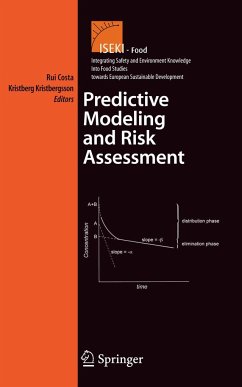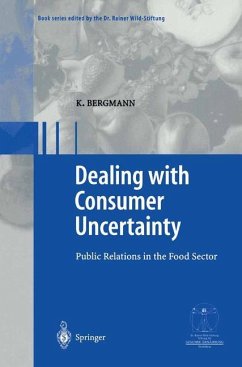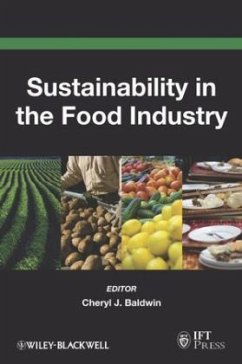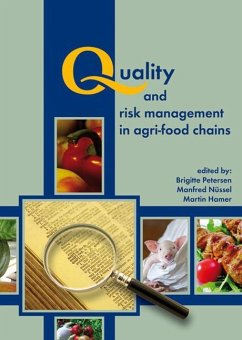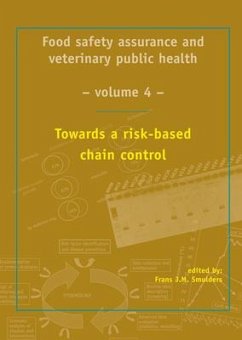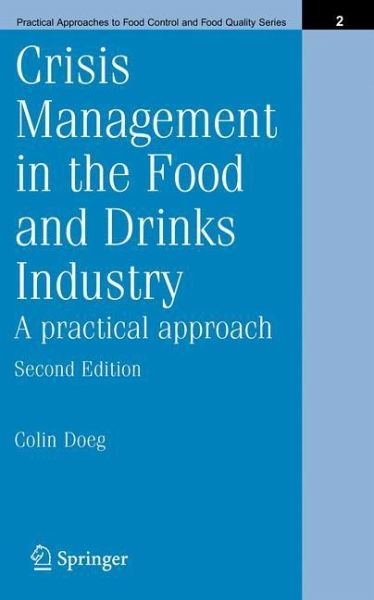
Crisis Management in the Food and Drinks Industry: A Practical Approach
Versandkostenfrei!
Versandfertig in 1-2 Wochen
77,99 €
inkl. MwSt.
Weitere Ausgaben:

PAYBACK Punkte
39 °P sammeln!
Few titles could be timelier than the second edition of Crisis Management in the Food and Drinks Industry - A Practical Approach. The world is worrying about a human pandemic arising from the avian flu epidemic that is spreading from the Far East, the implications of which could be as great for the food industry as were the outbreaks of foot and mouth disease and BSE.
This practical and greatly expanded edition by media and public relations veteran Colin Doeg focuses on the communications aspects of dealing with a crisis. It is global in its coverage of the subject, reviewing practices and requirements in countries ranging from the USA and the UK to Australia and New Zealand.
Doeg offers advice ranging from preparing for the unthinkable to the dramatic expansion of the Internet, avoiding being caught off-guard by a situation, the ramifications of product tampering and managing an actual crisis.
Advice is also offered on dealing with extremist organizations and terrorist threats as well as bioterrorism - "a clear and present danger" - and a number of problems facing the food industry, including the practice of selling meat unfit for human consumption and the threat posed by the increasing toxicity of fish due to the rising pollution of the world's oceans.
In a special late chapter - written only three months before publication - the author looks ahead to events which he believes will shape the world of crisis management in the future, including the empowering influence of the Internet during the 2004 Asian Tsunami, the discovery of the illegal dye Sudan 1 (Red) in millions of food products and the fears of a pandemic arising from the spreading outbreak of avian flu.
Examples of typical documents like a crisis plan for a business, a crisis checklist, a press release announcing a product recall, an announcement to employees and a checklist for anyone dealing with a threatening phone call are provided. Also included is a list of sources of information and assistance in the event of a product crisis.
Crisis Management in the Food and Drinks Industry is the only title dealing specifically with this crucial subject in relation to the food industry. As such, it is relevant not only to those in the food industry, but also to marketing and senior management in general in the fields of agriculture, public health and law enforcement.
This practical and greatly expanded edition by media and public relations veteran Colin Doeg focuses on the communications aspects of dealing with a crisis. It is global in its coverage of the subject, reviewing practices and requirements in countries ranging from the USA and the UK to Australia and New Zealand.
Doeg offers advice ranging from preparing for the unthinkable to the dramatic expansion of the Internet, avoiding being caught off-guard by a situation, the ramifications of product tampering and managing an actual crisis.
Advice is also offered on dealing with extremist organizations and terrorist threats as well as bioterrorism - "a clear and present danger" - and a number of problems facing the food industry, including the practice of selling meat unfit for human consumption and the threat posed by the increasing toxicity of fish due to the rising pollution of the world's oceans.
In a special late chapter - written only three months before publication - the author looks ahead to events which he believes will shape the world of crisis management in the future, including the empowering influence of the Internet during the 2004 Asian Tsunami, the discovery of the illegal dye Sudan 1 (Red) in millions of food products and the fears of a pandemic arising from the spreading outbreak of avian flu.
Examples of typical documents like a crisis plan for a business, a crisis checklist, a press release announcing a product recall, an announcement to employees and a checklist for anyone dealing with a threatening phone call are provided. Also included is a list of sources of information and assistance in the event of a product crisis.
Crisis Management in the Food and Drinks Industry is the only title dealing specifically with this crucial subject in relation to the food industry. As such, it is relevant not only to those in the food industry, but also to marketing and senior management in general in the fields of agriculture, public health and law enforcement.





